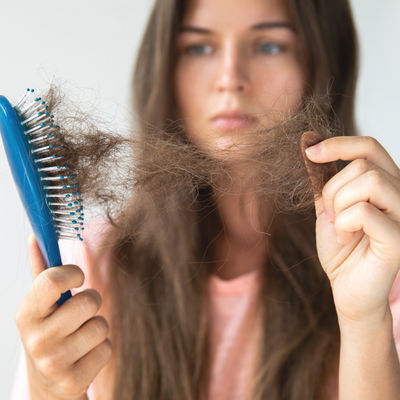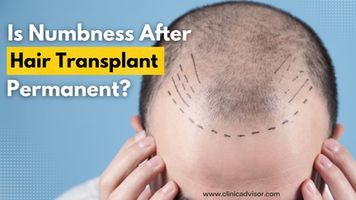
We are all at risk of being affected by the phenomenon of hair loss in the course of our lifetime. Main culprits: the hormones to which they are particularly sensitive. For you, Clinicadvisor® takes stock of the influence of hormones on our hair.
Hormonal changes and hair loss in women:
Alopecia is the generic medical term for hair loss on part or all of the scalp. This term comes from the Greek “alopex”, which means fox. This animal loses indeed, once a year, its hair in a dramatic way.
Hereditary androgenetic alopecia, the most common, mainly affects men (70% of cases). Acute alopecia, for its part, leads to faster and more consistent hair loss.
What causes androgenetic alopecia in women?
First cause of alopecia in women: hormonal imbalances related to different periods of life, following treatment or endocrine disorders. This is called androgenic alopecia.
In the event of significant and unexplained hair loss, it is then advisable to consult a dermatologist who will sort out among the various factors usually incriminated:
Endocrinological disorders concern the main hormone-producing glands, such as the thyroid (hyper or hypothyroidism). In addition, more rarely the pituitary gland which then begins to function in slow motion (we then speak of hypopituitarism) or, on the contrary, to produce too much prolactin (hormone allowing the start and the maintenance of lactation).
It can also be an excess of androgens (male hormones secreted by the ovaries and the adrenal glands) induced by the presence of micro-polycystic ovaries, by menopause or childbirth. The associated drop in female hormones then causes an impoverishment of the scalp and therefore hair loss, sensitized by too many male hormones.
Alopecia can also come from a genetically programmed hypersensitivity of the hair follicle (hair bulb) to androgens without these being produced excessively. This is called hyperandrogenism.
Consult a doctor online for your hair loss Simply fill out this form and we'll get in touch with you.
|  |
Author: ClinicAdvisor® Research Team
Medically reviewed by: Dr. Semra Akinturk
References:
https://www.sciencedirect.com/science/article/pii/S0022202X15529369
https://pubmed.ncbi.nlm.nih.gov/12894991/
https://www.webmd.com/skin-problems-and-treatments/hair-loss/hair-loss-types
x







Share Your Opinion, Please